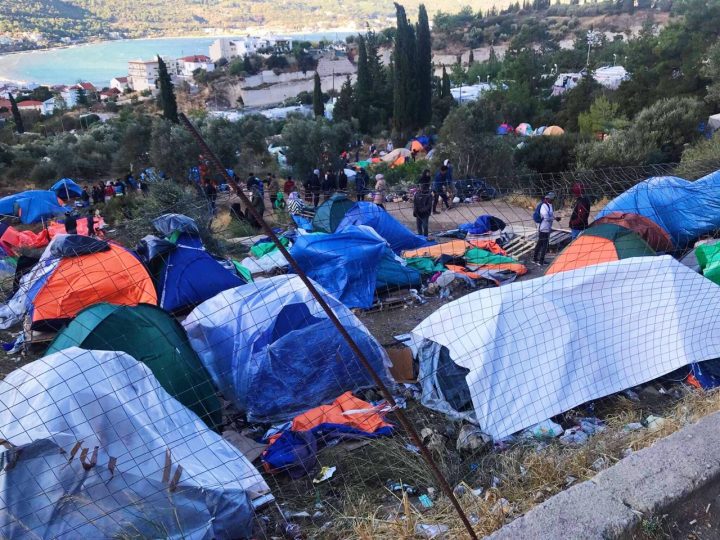At this time of year often people talk of going home for the holidays, of travelling to see family and friends, and of spending time in places where they grew up, reminiscing about the past and discussing, or even arguing, about the present. At this time the topic of politics often comes up. This has been the case for me, and in the last few weeks a number of people have asked me about my political views, where they have come from, and why I hold them. In particular people are interested (and often challenge) why I support open borders.
The answer, for me, is simple. We live in a world where some of us have the opportunity to go home in the holidays, to visit family and friends and to spend time discussing these questions. Yet we also live in world where 70.8 million people are displaced, often unable to return home, to see family or friends, or even to choose the town or country in which they live. This is not a just or fair system. It is a system based on luck, on privilege and on inequality. It is for this reason that I have spent the last few weeks defending my belief in the need for an altered system, a system that does not rely on closed borders and hostile environments.
In the past year I have visited the island of Samos in Greece three times. Samos, like Lesvos, Chios, Kos and Leros houses refugees and asylum seekers that cross the Aegean Sea fleeing persecution, war and poverty. In 2015 these islands, in particular Lesvos, were widely discussed in the media as Europe pondered what became described as ‘the refugee crisis’. In 2019 the islands are less talked about, but the numbers of people stuck there remains high. The Reception and Identification Centre (camp) on Lesvos (Moria) was built for 2500 people, but it currently houses around 18,000 in appalling conditions that lead to severe mental health traumas for adults and children. Vathy, the camp on Samos, now houses over 7500 people, in a camp intended to house 650. This means that the majority of people are housed in tents or makeshift shelters on the steep hill side outside of the barbed wire fences and containers of the camp itself. The conditions in winter are particularly dangerous as these shelters are not built to survive the wind, the rain and the mud of the hillside, once an olive grove. Queues for each meal can take up to 5 hours, and there are not enough showers or toilets to serve this many people. Nor are there enough school places for children, or safe housing spaces for unaccompanied minors. People are stuck in these conditions, waiting up to 2 years for an asylum meeting, to find out what happens next for their futures, whether they will be moved further in to Europe or returned to Turkey (deemed a safe third country), or to their home countries. They have very little choice or autonomy when it come to that decision. Their lives, their futures are placed into the hands of an official who sits down that day to decide where they go next and when. Whether a child can be reunited with their parents, whether brothers and sisters are to be separated because one is a minor and one is 18, whether they stay in Greece to start a new life or go elsewhere.
A global system that allows some people to travel for work, to see family, to see friends, simply to go on holiday because of the privilege of the passport they hold, yet traps others on an island in terrible conditions awaiting a decision on their future is not a just system. It is not a fair system and it is not a sustainable system. This is why, when I have been told over the last few weeks of the value of borders that I have challenged it. Because borders are closed for some and open for others and this is a situation that we must challenge as we walk into a new decade. Those who have the privilege of open borders owe it to those that don’t to challenge the system, to fight for change and to advocate for better conditions for people forced to live in overcrowded camps on islands at the borders of Europe that the media and politicians have wilfully forgotten.










